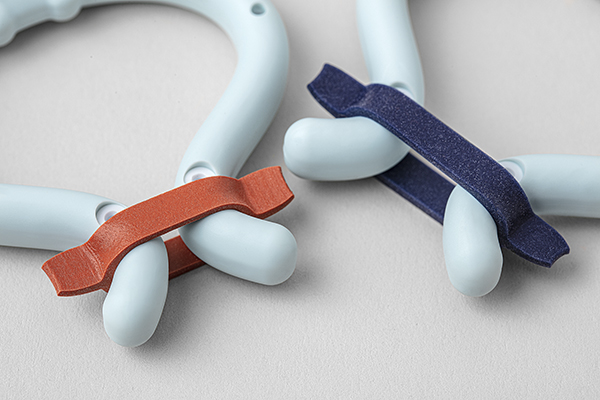Testosterone levels in men change throughout the years, with levels starting to dip once a male reaches his 30s, 40s, and beyond. Symptoms of low testosterone in men include low sex drive, erectile dysfunction (ED), depressed mood and sense of well-being, fatigue, and moodiness. Physical effects include loss of muscle mass, increase in body fat, osteoporosis, mild anemia, and breast development.
Testosterone therapy is one treatment method that may be prescribed, although medication is not for everyone. There are some side effects of testosterone shots and medication that you may want to avoid. Fortunately, there are several tips for how to increase testosterone naturally to improve quality of life and minimize other symptoms associated with lower testosterone levels.
Follow a Well-Balanced Diet
Proper nutrition plays an important part in maintaining all levels of physical health. This includes an impact on testosterone levels. Various research links obesity and low testosterone levels, which are influenced by dietary factors. For example, in a study published in the scientific journal, Nutrients, it was determined the visceral fat and decreased muscle mass of those who followed a diet that included mostly bread and dairy and fewer green vegetables were more likely to have low testosterone levels. They were also more likely to develop hypogonadism than those following healthier nutrition habits.
Assess your current diet to ensure you’re eating enough protein, healthy fats, and carbohydrates on a daily basis. Avoid excessive sugar, caffeine, dairy products, and red meat, as these all can create an imbalance of male hormones. As you learn more about how to increase testosterone naturally, you’ll realize that many of the methods require simple adjustments to your current lifestyle.
Minimize Cortisol Levels
Another tip for how to increase testosterone hormones naturally is to monitor your cortisol levels. Cortisol is the body’s natural stress hormone that increases glucose in the bloodstream and suppresses the digestive system and reproductive system. When you experience high levels of stress, cortisol levels remain high as well and disrupt your body’s natural processes. It affects your food intake, sleep quality, and other adverse health effects, including heart disease.
As per the American Psychological Association, the presence of chronic stress can affect the level of testosterone production and lead to a decline in sex drive and cause erectile dysfunction. It can also lower sperm production, causing challenges for couples trying to conceive. Additionally, stress impacts the immune system and makes the body more vulnerable to infection, including infection to the prostate gland, urethra, and testes that prohibit normal male reproduction processes.
Exercise Regularly
Along the same lines of following a well-balanced diet and lowering stress, exercise also plays a significant role in maintaining good health in all areas. Exercising regularly as a natural way to boost testosterone promotes weight maintenance to eliminate obesity and build muscle, which in turn, helps with higher testosterone levels. It’s important to note, however, that not all exercise offers the same effects for this specific purpose.
According to research, including insight from a urologist with Piedmont Healthcare, a mix of cardio and strength training through high-intensity interval workouts and weightlifting are the best combination to improve testosterone levels. Conversely, endurance-based physical activity, such as extended running or cycling, has shown to lower testosterone levels. This is because endurance athletes often have higher cortisol levels.
Take Vitamins and/or Natural Testosterone Supplements
Men who experience a vitamin deficiency, particularly in vitamin D and zinc, may have lower levels of testosterone. In a controlled trial published in the Hormone and Metabolic Research journal, vitamin D supplementation resulted in increased testosterone levels when compared to baseline values, increasing from 10.7 nmol/l to 13.4 nmol/l. Additionally, red meat provides a source of zinc. When reassessing a diet to reduce the consumption of red meat, supplementing with zinc may be necessary as a natural immune booster.
There are additional studies that suggest vitamins C, A, and E, as well as certain natural herbs, may also affect testosterone hormone levels. For example, research surrounding Ashwagandha has shown to increase sperm count, semen volume, and sperm motility, in addition to increased regulation of serum hormone levels after a 90-day treatment of taking Ashwagandha. Nutritional testing can uncover areas where you may be vitamin deficient to help guide which supplements may work best.
Get Plenty of Rest
Achieving consistent, quality sleep works in tandem with a healthy diet and exercise plan. They all work together to improve your health and testosterone levels. The majority of testosterone is made during your deepest stage of sleep. Interrupted sleep that doesn’t reach the rapid eye movement (REM) level has been linked to lower levels of testosterone, according to information provided by the Integrative Medicine Program, Department of Family Medicine at the University of Wisconsin-Madison School of Medicine and Public Health.
All of these health tips for how to increase testosterone naturally have long been prescribed by medical providers due to their impact on all areas of health, with emphasis on how each of these lifestyle changes can promote better reproductive health in men. Furthermore, regulating your habits may eliminate the need for testosterone therapy medication or injections that are often costly and carry the risk of side effects, including muscle pain, vision loss, nausea, and priapism (an erection that will not go away).
Use a Science-Backed ED Device
Another non-medication solution to address the symptoms of low testosterone levels is using an erectile dysfunction device. Traditional ED devices aim to mimic the pressure that takes place in a natural erection. However, these devices force the penis into an unnatural shape, compressing the arteries and preventing blood flow, which leaves the sensation of an abnormal erection. Common ED products constrict the urethra making ejaculation uncomfortable and inhibited.

Fortunately, Giddy’s ED device fits naturally to recreate the pressure that occurs in a natural erection. The shape of the Eddie ED device leaves the urethra open to support free-flowing ejaculation in a natural, body-safe way. It’s designed for comfort and proven effective without the need for a prescription. It’s also available in multiple sizes to maximize its effectiveness to boost your sexual health and wellness.
What Causes Testosterone Levels to Decrease?
One of the most common reasons for a decrease in testosterone levels is age. According to the Cleveland Clinic, 40 percent of men aged 45 and older are affected by low testosterone levels, which is referred to as late onset hypogonadism. As a man ages, a natural decline begins after the age of 30 and continues by approximately one percent every year throughout the rest of his life. This decrease in testosterone leads to erectile dysfunction, decreased sex drive, lack of energy, and other physical, biological, and psychological symptoms.
Other causes of a decrease in testosterone include injury, too much iron in the body, certain medications, including steroids and opioids, alcohol abuse, sleep apnea, among other specific health events that may alter healthy testosterone levels. If you are within this age range, experience the recognized symptoms, and/or meet any of the lifestyle criteria, it’s likely your testosterone levels have decreased. A blood test can diagnose testosterone levels and can rule out other factors besides aging, such as diabetes or thyroid problems.
Why Natural Ways to Increase Testosterone Are Beneficial
The primary reason for learning how to raise testosterone levels naturally is to eliminate risks associated with testosterone therapy and other traditional ED medication. Although medication may help reverse effects of hypogonadism in young males, there’s less evidence that supports the use of it for older men who are otherwise healthy, since aging is a biological cause of lower levels of testosterone. According to the Mayo Clinic, testosterone therapy comes with risks of:
- Worsening sleep apnea
- Stimulating noncancerous growth of the prostate
- Breast enlargement
- Acne or other skin reactions
- Too much red blood production, which increases the chance of blood clots
For older men who are experiencing low levels of testosterone that’s begun to affect their sexual health and quality of life, the first step is to follow a natural treatment path of a balanced diet, consistent exercise, quality sleep, and the use of an ED device that’s proven comfortable and safe to use. Often, men will see improvements in their mood, self-confidence, and sexual functions without needing to rely on medication or other forms of testosterone therapy.
The combination of aging, sedentary, stressful lifestyles, and other everyday factors that affect your health is what makes preventative and proactive care all the more important to maintain healthy body function, particularly when it comes to your sexual health. Approaching care through natural means eliminates the risks of side effects that may further aggravate the body and inadvertently result in more stress on the body sustaining low testosterone levels.
As you age, there’s a greater focus on changes in your health on a physical, mental, and sexual level. If you’re feeling the effects associated with low testosterone, it may be time to assess your daily habits. By changing your lifestyle in positive ways, it impacts your health and allows you to feel the difference from the inside out.
Sources:
https://www.healthline.com/nutrition/8-ways-to-boost-testosterone
http://projects.hsl.wisc.edu/SERVICE/modules/22/M22_CT_Low_Testosterone.pdf
https://www.ncbi.nlm.nih.gov/pmc/articles/PMC6266690/
https://www.mayoclinic.org/healthy-lifestyle/stress-management/in-depth/stress/art-20046037
https://www.apa.org/helpcenter/stress/effects-male-reproductive
https://www.piedmont.org/living-better/the-best-exercises-to-increase-testosterone
https://pubmed.ncbi.nlm.nih.gov/21154195/
https://pubmed.ncbi.nlm.nih.gov/24371462/
https://my.clevelandclinic.org/health/diseases/15603-low-testosterone-male-hypogonadism








